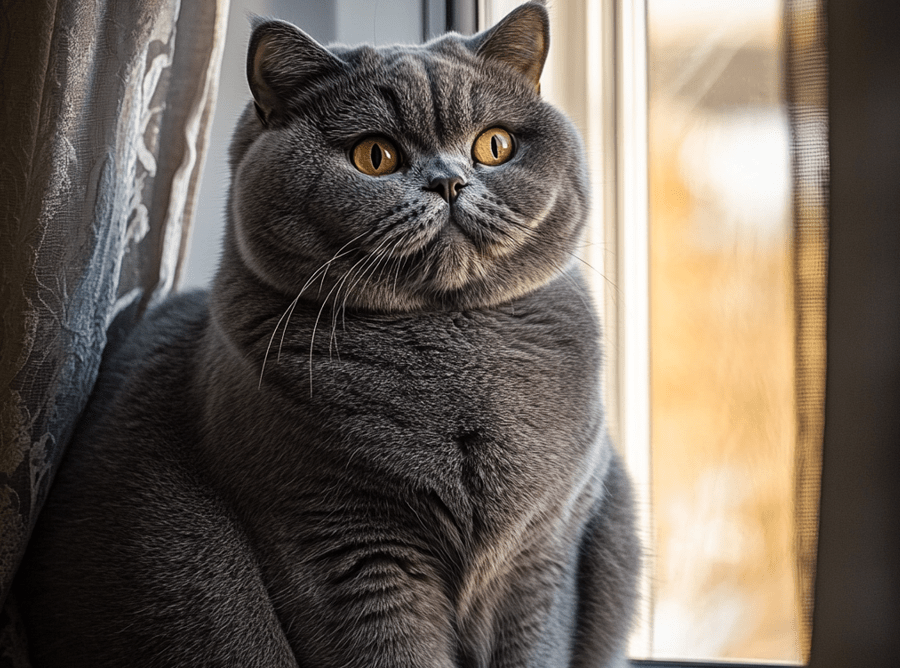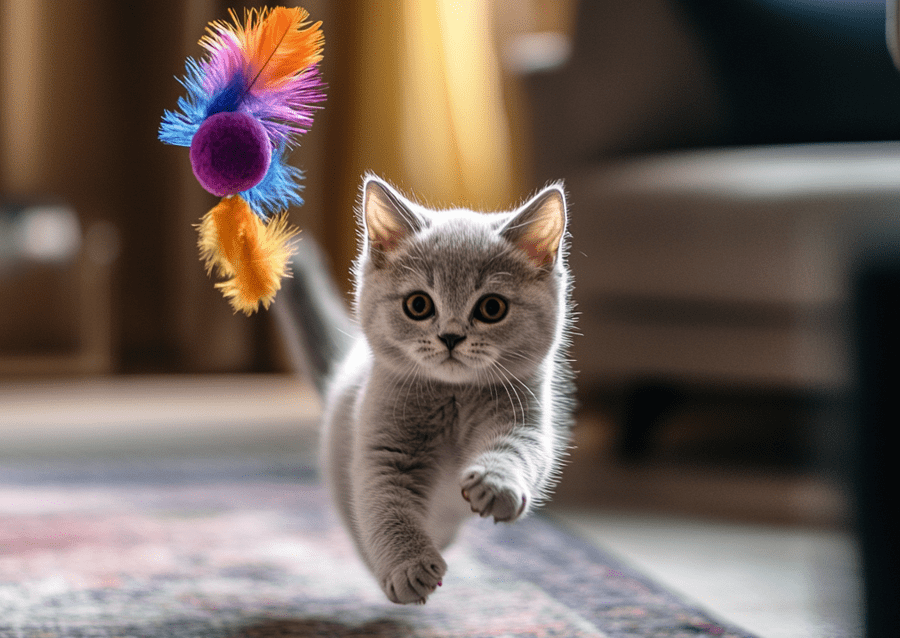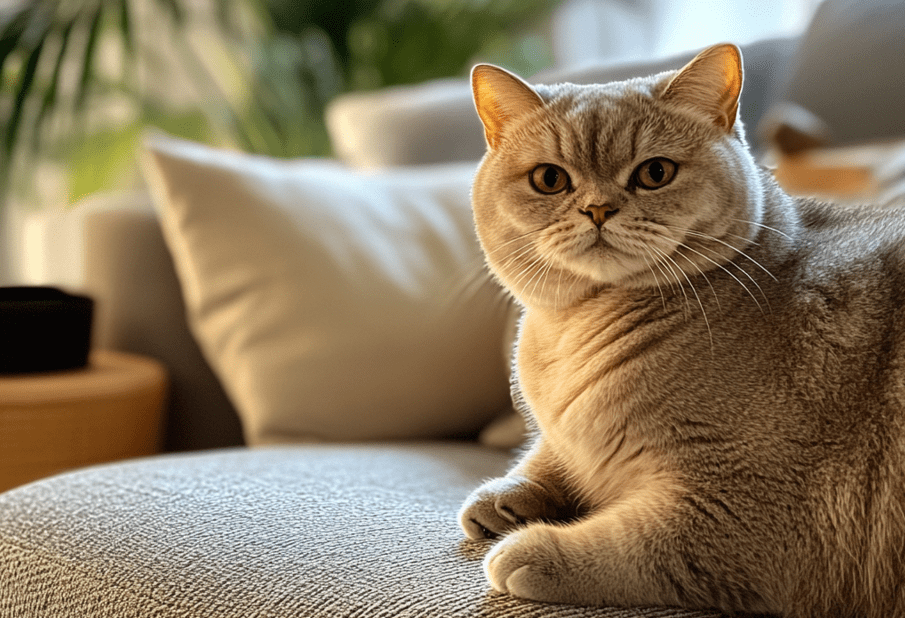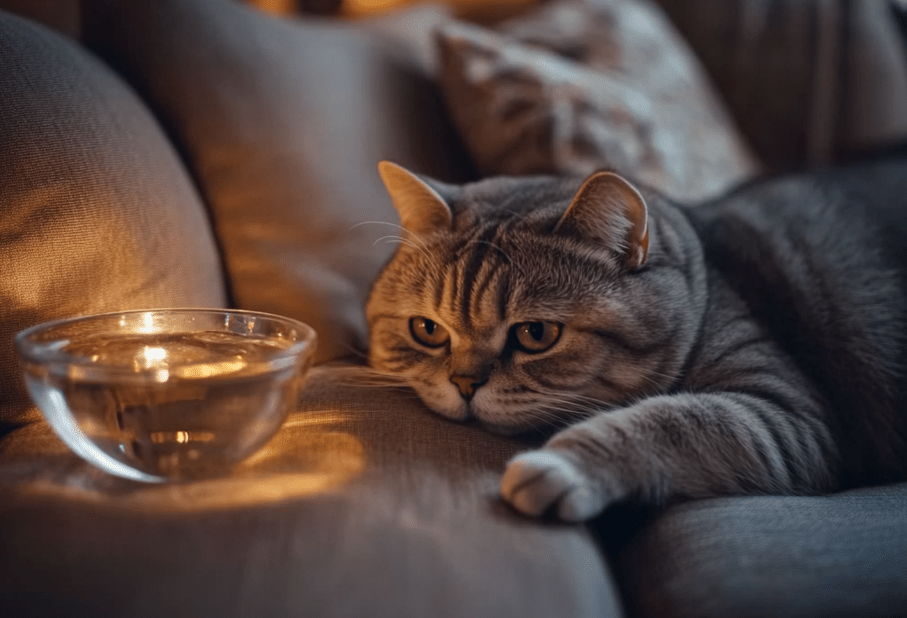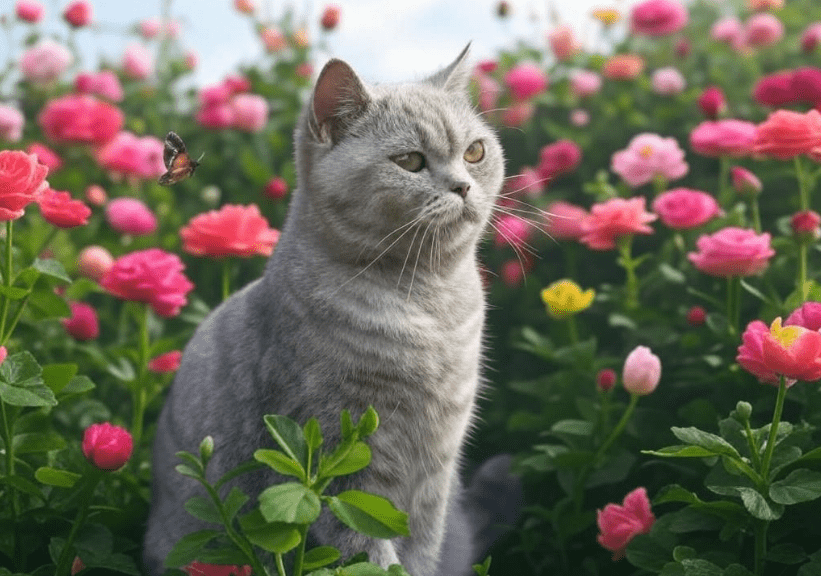
British Shorthair cats, with their plush coats and round, expressive faces, are beloved for their calm demeanor and robust health. However, like all felines, British Shorthair cats require proper care to thrive, and vaccinations play a critical role in their well-being. Vaccinations for British Shorthair cats protect against life-threatening diseases, ensuring these charming companions live long, healthy lives. This comprehensive guide explores why vaccinations are essential, which vaccines are necessary, and how to create a vaccination schedule tailored to your British Shorthair’s needs. Whether you’re a new owner or a seasoned breeder, this article provides valuable insights to keep your cat safe.
Why Vaccinations Matter for British Shorthair Cats
Vaccinations are a cornerstone of preventive veterinary care, shielding cats from infectious diseases that can cause severe illness or death. For British Shorthair cats, a breed known for its sturdy constitution, vaccinations are particularly important to maintain their natural resilience. These vaccines stimulate the immune system to recognize and fight off pathogens without causing the actual disease. By vaccinating your British Shorthair, you not only protect your pet but also contribute to the broader effort to control contagious diseases in the feline population.
Benefits of Vaccinations
Disease Prevention: Vaccines protect against common and deadly feline diseases, such as rabies and feline panleukopenia.
Long-Term Health: Vaccinations reduce the risk of chronic complications from infections, preserving your cat’s quality of life.
Community Protection: Vaccinated cats are less likely to spread diseases to other pets, supporting herd immunity.
Cost Savings: Preventing diseases through vaccination is far more affordable than treating severe illnesses.
Legal Compliance: In many regions, vaccines like rabies are required by law to protect public health.
Core Vaccinations for British Shorthair Cats
Veterinarians categorize feline vaccines into “core” and “non-core” based on their necessity and the cat’s lifestyle. Core vaccines are recommended for all cats due to the severity and contagiousness of the diseases they prevent. For British Shorthair cats, the following core vaccinations are essential:
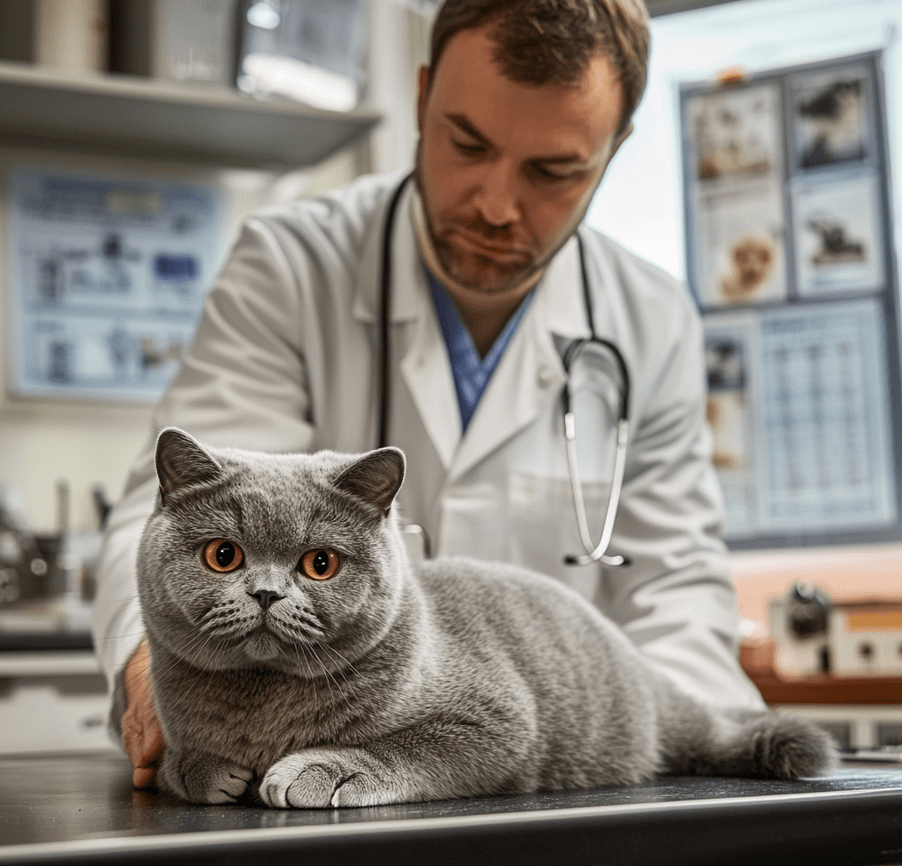
1. Feline Panleukopenia Virus (FPV)
Feline panleukopenia, also known as feline distemper, is a highly contagious and often fatal viral disease that attacks the gastrointestinal tract, bone marrow, and immune system.
Symptoms: Fever, vomiting, diarrhea, lethargy, and sudden death in severe cases.
Why It’s Important: FPV is particularly dangerous for kittens, with mortality rates as high as 90% in untreated cases. British Shorthairs, despite their robust nature, are not immune.
Vaccine Schedule: Administered as part of the FVRCP combination vaccine at 6–8 weeks, with boosters every 3–4 weeks until 16 weeks, then annually or every three years.
2. Feline Viral Rhinotracheitis (FVR)
Caused by the feline herpesvirus-1 (FHV-1), this respiratory disease leads to severe upper respiratory symptoms and can cause lifelong complications.
Symptoms: Sneezing, nasal discharge, conjunctivitis, and corneal ulcers. Stress can trigger flare-ups in carriers.
Why It’s Important: British Shorthairs with their dense coats may be prone to stress-related flare-ups if exposed to FHV-1, making vaccination critical.
Vaccine Schedule: Included in the FVRCP vaccine, following the same schedule as FPV.
3. Feline Calicivirus (FCV)
Feline calicivirus causes respiratory infections and oral ulcers, with some strains leading to more severe systemic disease.
Symptoms: Ulcers on the tongue or mouth, drooling, lameness, and respiratory distress.
Why It’s Important: FCV is highly contagious and can persist in the environment, posing a risk to multi-cat households or catteries with British Shorthairs.
Vaccine Schedule: Part of the FVRCP vaccine, administered on the same schedule.
4. Rabies
Rabies is a deadly viral disease that affects the nervous system and is transmissible to humans and other animals.
Symptoms: Behavioral changes, aggression, paralysis, and death.
Why It’s Important: Rabies vaccination is legally required in many areas, and British Shorthairs, even indoor cats, can be exposed through wildlife or unvaccinated animals.
Vaccine Schedule: First dose at 12–16 weeks, followed by boosters every 1–3 years, depending on local regulations and vaccine type.
Non-Core Vaccinations for British Shorthair Cats
Non-core vaccines are recommended based on a cat’s lifestyle, environment, and risk factors. For British Shorthair cats, your veterinarian may suggest the following:
1. Feline Leukemia Virus (FeLV)
Feline leukemia is a viral disease that weakens the immune system, increasing susceptibility to infections and cancer.
Symptoms: Weight loss, anemia, recurrent infections, and lethargy.
Who Needs It: Recommended for British Shorthairs that go outdoors, live in multi-cat households, or interact with FeLV-positive cats.
Vaccine Schedule: Initial dose at 8–12 weeks, with a booster 3–4 weeks later, then annually for at-risk cats.
2. Bordetella Bronchiseptica
This bacterial infection causes respiratory disease, often in multi-cat environments like shelters or catteries.
Symptoms: Coughing, sneezing, and nasal discharge.
Who Needs It: Suitable for British Shorthairs in boarding facilities or show environments.
Vaccine Schedule: Single dose, typically intranasal, with annual boosters if needed.
3. Feline Immunodeficiency Virus (FIV)
FIV weakens the immune system, similar to FeLV, but is primarily spread through bite wounds.
Symptoms: Chronic infections, dental disease, and weight loss.
Who Needs It: Rarely recommended due to limited vaccine efficacy and the need for FIV testing before vaccination. Outdoor British Shorthairs may be considered.
Vaccine Schedule: Varies, but typically three initial doses 2–3 weeks apart, followed by annual boosters.
Creating a Vaccination Schedule for Your British Shorthair
A tailored vaccination schedule ensures your British Shorthair cat receives the right protection at the right time. Below is a general guideline, but always consult your veterinarian for a personalized plan based on your cat’s age, health, and lifestyle.

Kitten Vaccination Schedule
6–8 Weeks: First FVRCP vaccine (FPV, FVR, FCV).
10–12 Weeks: Second FVRCP booster; FeLV (if needed).
14–16 Weeks: Third FVRCP booster; FeLV booster (if needed); rabies (depending on local laws).
6 Months: Spay/neuter and health check; additional boosters if required.
Adult Vaccination Schedule
1 Year: FVRCP booster; rabies booster; FeLV (if needed).
Every 1–3 Years: FVRCP (depending on vaccine type); rabies (per local regulations); FeLV or other non-core vaccines as needed.
Senior Cats (7+ Years)
Annual Checkups: Assess the need for FVRCP and rabies boosters, as older British Shorthairs may have weaker immune responses.
Health Monitoring: Combine vaccinations with bloodwork and screenings to detect age-related conditions early.
Special Considerations for British Shorthair Cats
British Shorthair cats have unique characteristics that may influence their vaccination needs:
Indoor vs. Outdoor Lifestyle: Indoor British Shorthairs require core vaccines but may not need FeLV or FIV vaccines unless exposed to other cats.
Dense Coat and Skin Sensitivity: Their thick fur can mask skin reactions at injection sites. Monitor for swelling or discomfort post-vaccination.
Calm Temperament: British Shorthairs are generally easygoing, but stress from vet visits can affect their immune response. Use calming techniques like pheromone sprays.
Weight Management: This breed is prone to obesity, which can complicate immune health. Maintain a healthy weight to support vaccine efficacy.
Risks and Side Effects of Vaccinations
While vaccinations are generally safe, they can cause mild side effects in some British Shorthair cats. Common reactions include:
Mild Fever or Lethargy: Lasts 1–2 days post-vaccination.
Localized Swelling: At the injection site, typically resolving within a week.
Mild Allergic Reactions: Sneezing or slight swelling, rare but treatable.
Rare but Serious Risks
Anaphylaxis: A severe allergic reaction requiring immediate veterinary attention. Symptoms include vomiting, difficulty breathing, or collapse.
Vaccine-Associated Sarcoma: An extremely rare cancer at the injection site, more common with certain vaccines like FeLV or rabies. Modern vaccines and injection protocols minimize this risk.
To reduce risks, ensure your veterinarian uses high-quality vaccines, follows proper injection techniques, and monitors your cat post-vaccination. Report any unusual symptoms immediately.
The Role of Responsible Breeding in Vaccination Needs
British Shorthair cats from reputable breeders often have a strong health foundation, which can influence their vaccination response. Ethical breeders:
Provide Initial Vaccinations: Kittens typically receive their first FVRCP dose before going to new homes.
Share Health Records: Documentation of the kitten’s vaccination history and parental health screenings.
Promote Genetic Health: Breeding for robust immune systems reduces disease susceptibility.
When adopting a British Shorthair, request vaccination records and confirm the kitten has been dewormed and checked for parasites, as these can affect vaccine efficacy.
How to Prepare Your British Shorthair for Vaccinations
Preparing your British Shorthair for a vet visit can make the vaccination process smoother:
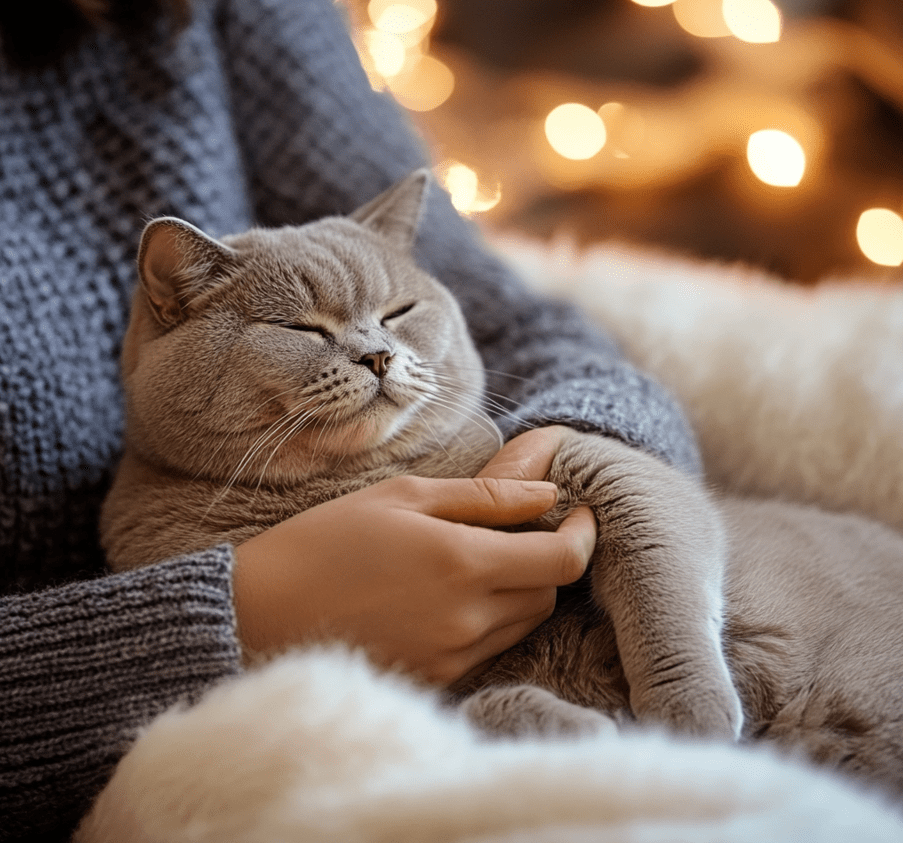
Schedule During Quiet Times: Book appointments when the vet clinic is less busy to reduce stress.
Use a Comfortable Carrier: Familiarize your cat with the carrier using treats or toys.
Bring Health Records: Provide your vet with your cat’s vaccination and medical history.
Discuss Concerns: Share any past reactions or health issues with your veterinarian.
Post-Vaccination Care: Monitor your cat for 24–48 hours, ensuring they rest and have access to water.
Common Myths About Cat Vaccinations
Misinformation can lead to hesitation about vaccinating your British Shorthair. Let’s debunk some common myths:
Myth: Indoor cats don’t need vaccines.
Fact: Indoor British Shorthairs can still be exposed to diseases through fomites (e.g., shoes or clothing) or wildlife. Core vaccines are essential.
Myth: Vaccines cause autism in cats.
Fact: There’s no scientific evidence linking vaccines to autism or similar conditions in cats.
Myth: Over-vaccination is harmful.
Fact: Modern vaccine protocols, like triennial boosters, minimize over-vaccination while ensuring protection.
Myth: Natural immunity is better than vaccines.
Fact: Exposing a cat to diseases to build immunity is dangerous and often fatal. Vaccines provide safe, controlled immunity.
The Cost of Vaccinations for British Shorthair Cats
Vaccination costs vary by region, clinic, and vaccine type. On average:
FVRCP Vaccine: $20–$40 per dose.
Rabies Vaccine: $15–$30 per dose.
FeLV Vaccine: $25–$45 per dose.
Veterinary Exam Fee: $40–$80 per visit.
Many clinics offer kitten vaccination packages that bundle initial doses and exams, saving money. Pet insurance or wellness plans may also cover preventive care, including vaccinations.
Choosing a Veterinarian for Your British Shorthair
A trusted veterinarian is key to your British Shorthair’s health. Look for:
Feline Expertise: A vet experienced with cats, ideally familiar with British Shorthair traits.
Accreditation: Membership in organizations like the American Association of Feline Practitioners (AAFP).
Clear Communication: A vet who explains vaccine protocols and answers questions thoroughly.
Modern Facilities: Clinics with up-to-date equipment and vaccine storage protocols.
The Future of Feline Vaccinations
Advancements in veterinary science are improving vaccine safety and efficacy. Researchers are developing:
Longer-Lasting Vaccines: Reducing the need for frequent boosters.
Targeted Vaccines: Protecting against emerging feline diseases.
Non-Invasive Delivery: Oral or nasal vaccines to reduce stress.
For British Shorthair owners, staying informed about these developments ensures your cat benefits from the latest preventive care.
Living with a Vaccinated British Shorthair
Vaccinations are just one part of keeping your British Shorthair healthy. Complement them with:
Balanced Diet: Feed high-quality, protein-rich food to support immune health.
Regular Exercise: Engage your British Shorthair with toys and climbing structures to prevent obesity.
Dental Care: Brush teeth regularly and schedule dental checkups to avoid periodontal disease.
Parasite Control: Use flea, tick, and heartworm preventives as recommended by your vet.
Stress Reduction: Provide a calm environment with hiding spots and routine to minimize stress-related illnesses.
Conclusion

Vaccinations for British Shorthair cats are a vital investment in their health, protecting them from devastating diseases like rabies, panleukopenia, and feline leukemia. By understanding the core and non-core vaccines, creating a tailored schedule, and working with a trusted veterinarian, you can ensure your British Shorthair thrives for years to come. Combine vaccinations with proper nutrition, exercise, and regular checkups to give your cat the best chance at a long, happy life. With their charming personalities and sturdy build, British Shorthairs deserve the protection that only a comprehensive vaccination plan can provide.

